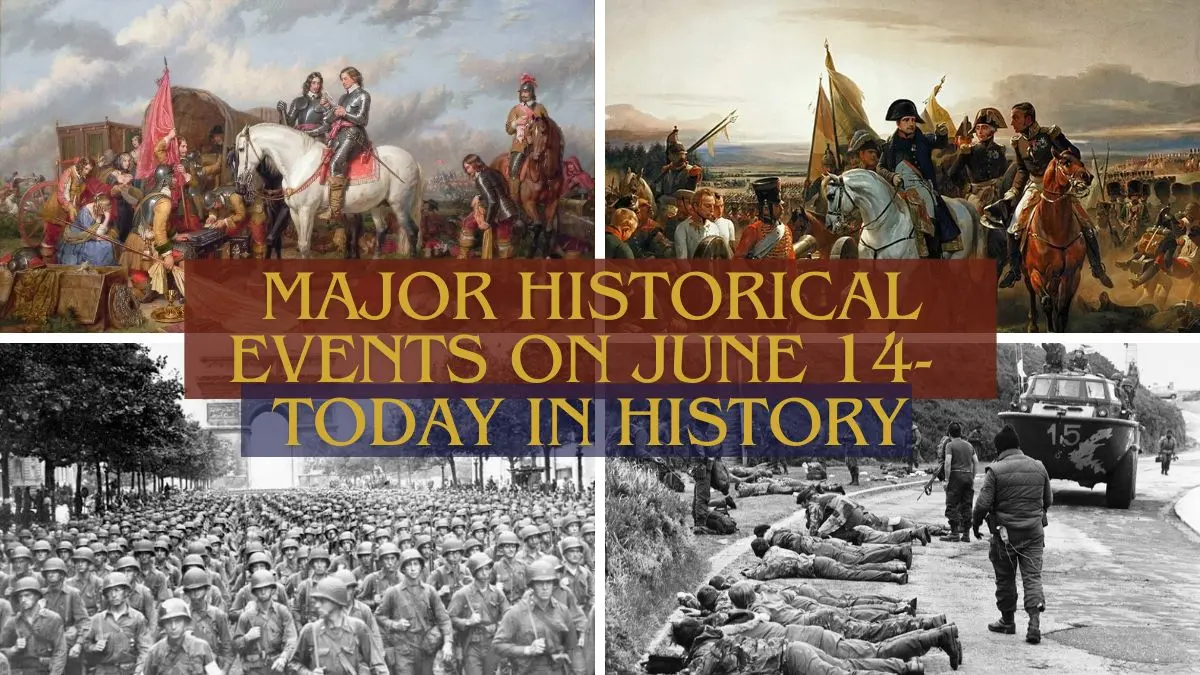June 14th has witnessed some of the most impactful events in history. Let’s explore the Major Historical Events on June 14 that make this date unforgettable.
Major Historical Events on June 14- Today in History
Cromwell’s Triumph at Naseby – 1645 AD
In 1645, Oliver Cromwell led the New Model Army to a decisive victory over the royalists commanded by Prince Rupert at the Battle of Naseby, shifting the tide of the English Civil War.
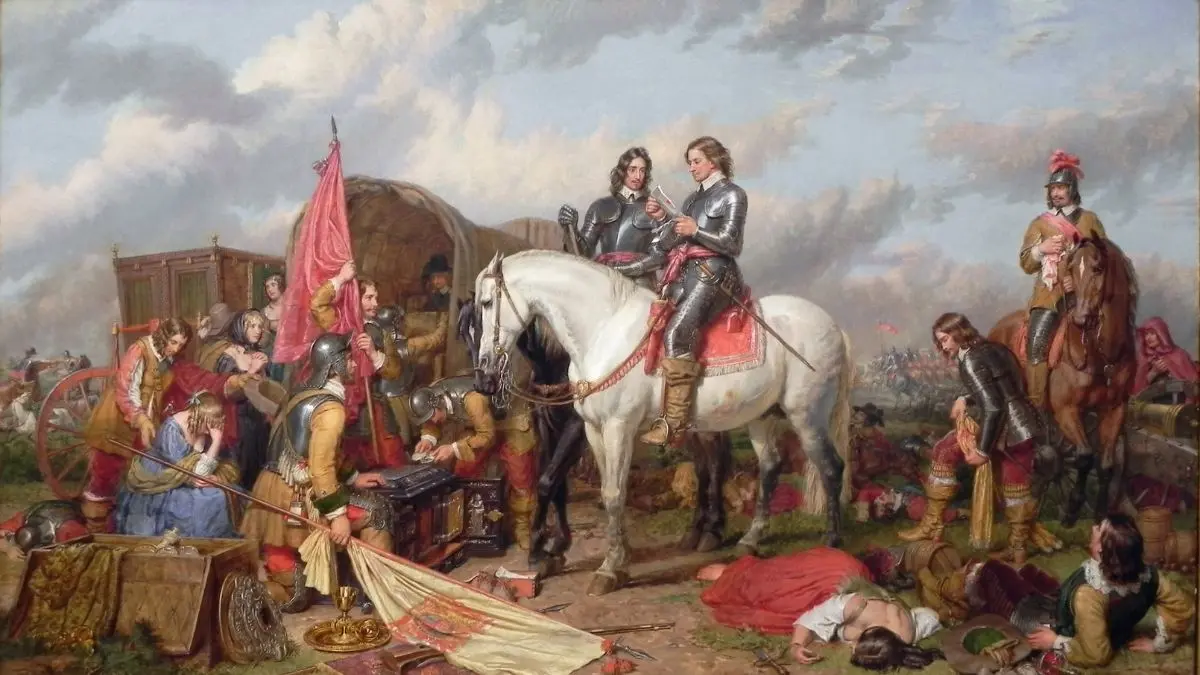
Victory at the Battle of the Dunes – 1658 AD
In 1658, a combined French and English force defeated the Spanish near Dunkirk in the Battle of the Dunes, marking a crucial win during the Franco-Spanish War.
Birth of the Stars and Stripes – 1777 AD
On June 14, 1777, the Continental Congress approved the design of the Stars and Stripes, establishing the first national flag of the United States, symbolizing unity and independence.
Napoleon’s Ascendancy at Marengo – 1800 AD
Napoleon Bonaparte secured his dominance in Paris by defeating the Austrians in the Battle of Marengo in 1800, cementing his military and political power.
Triumph at Friedland – 1807 AD
In 1807, Napoleon’s victory at the Battle of Friedland forced Tsar Alexander I of Russia to sign the Treaty of Tilsit, reshaping European alliances.
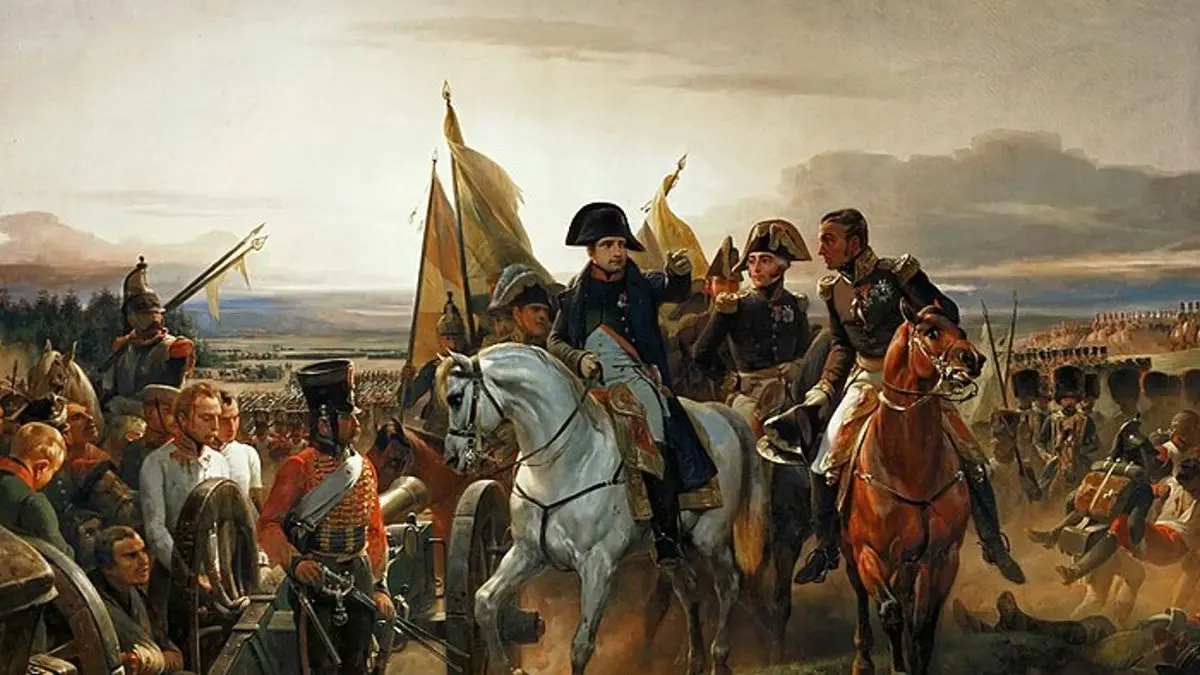
Birth of Harriet Beecher Stowe – 1811 AD
Harriet Beecher Stowe, born on June 14, 1811, in Litchfield, Connecticut, authored “Uncle Tom’s Cabin,” a novel that intensified antislavery sentiments and contributed to the Civil War’s causes.
Gandhi Leads Protests Against the Immigration Act – 1913 AD
In 1913, the South African government passed the Immigration Act, severely restricting the entry and movement of Asians, including resident Indians. This discriminatory law sparked widespread agitation and riots among the Indian community. Mahatma Gandhi emerged as a prominent leader, organizing protests and civil disobedience campaigns against the Act, advocating for the rights and dignity of Indians in South Africa.
Che Guevara’s Legacy – 1928 AD
Born on June 14, 1928, Che Guevara became a prominent figure in the Cuban Revolution and a symbol of guerrilla warfare and communist ideology in South America.
Occupation of Paris by German Forces – 1940 AD
On June 14, 1940, German troops entered Paris, initiating a four-year occupation of the city during World War II.
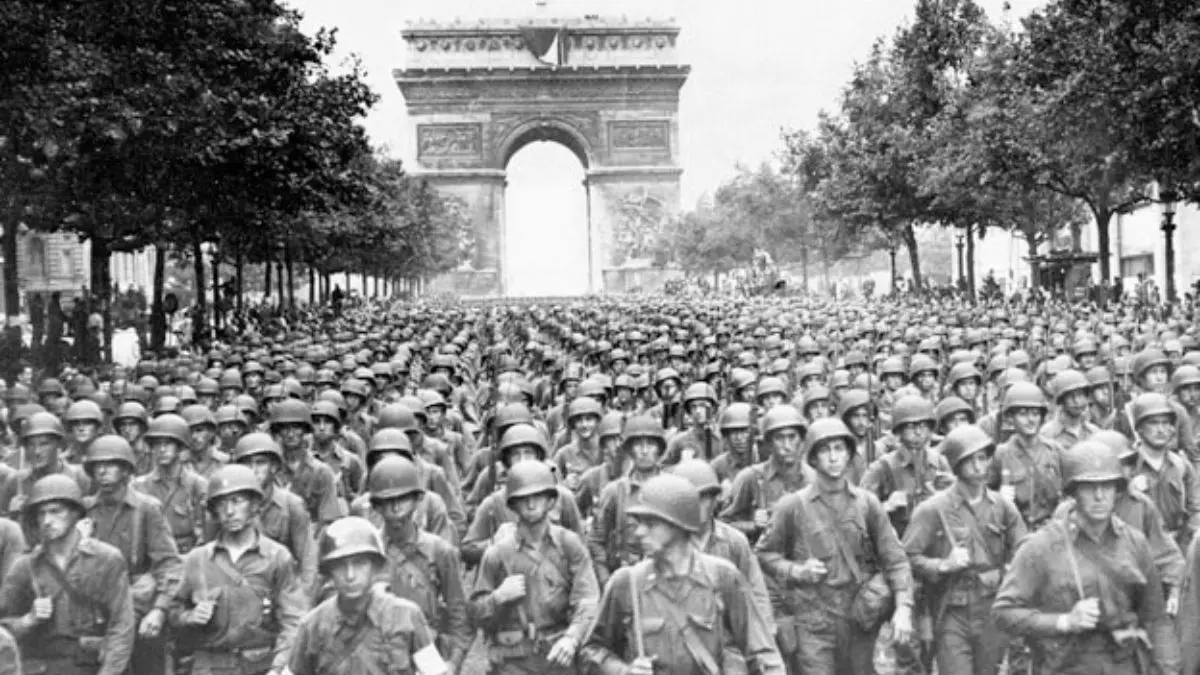
Arrival of Polish Prisoners at Auschwitz – 1940 AD
On June 14, 1940, the first transport of Polish political prisoners arrived at Auschwitz, marking the beginning of what would become Nazi Germany’s largest concentration and extermination camp, where over a million people perished.
Anne Frank Begins Her Diary – 1942 AD
On June 14, 1942, just two days after her 13th birthday, Anne frank began writing in her diary in Dutch. This diary, which she named “Kitty,” became her confidant and a detailed record of her life hiding from the Nazis during World War II. Anne’s writings poignantly captured the fears, hopes, and daily experiences of a young Jewish girl in hiding, eventually becoming one of the most important and widely read documents of the Holocaust.
Vostok 5 and the First Woman in Space – 1963 AD
The Soviet Union launched Vostok 5 on June 14, 1963, and two days later, Valentina Tereshkova aboard Vostok 6 became the first woman to journey into space.
End of the Falkland Islands War – 1982 AD
The surrender of the Argentine garrison at Port Stanley to British forces on June 14, 1982, concluded the Falkland Islands War, a conflict over the disputed South Atlantic territories.
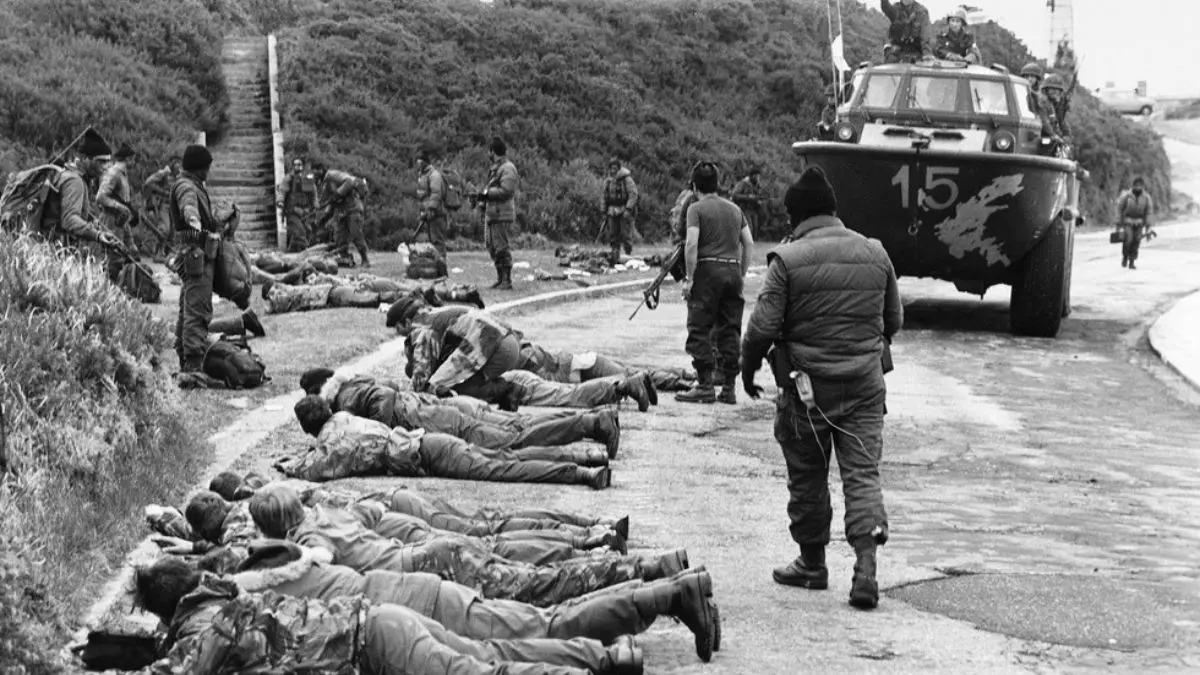
Phil Jackson’s Historic NBA Victory – 2009 AD
Phil Jackson set a record with his 10th NBA championship as a coach when the Los Angeles Lakers defeated the Orlando Magic on June 14, 2009.
Also Read: Major Historical Events on June 13- Today in History


